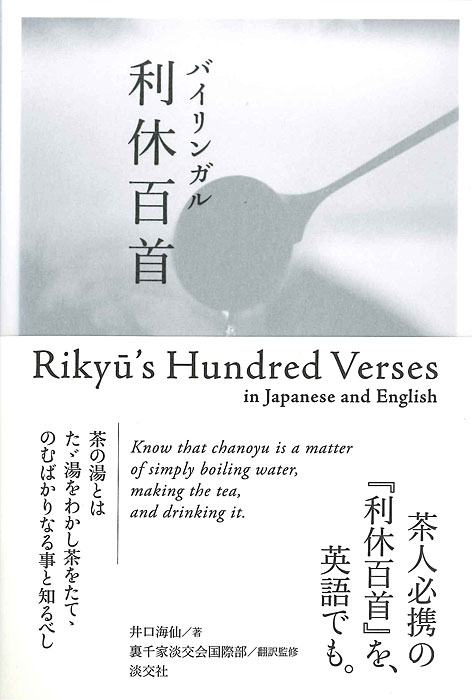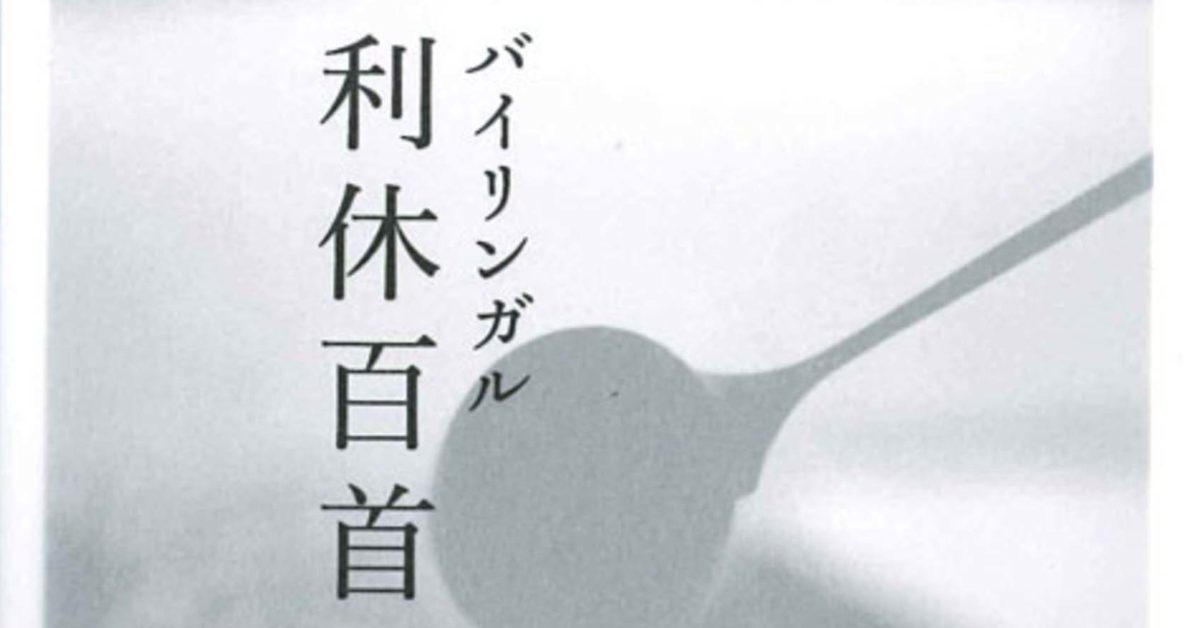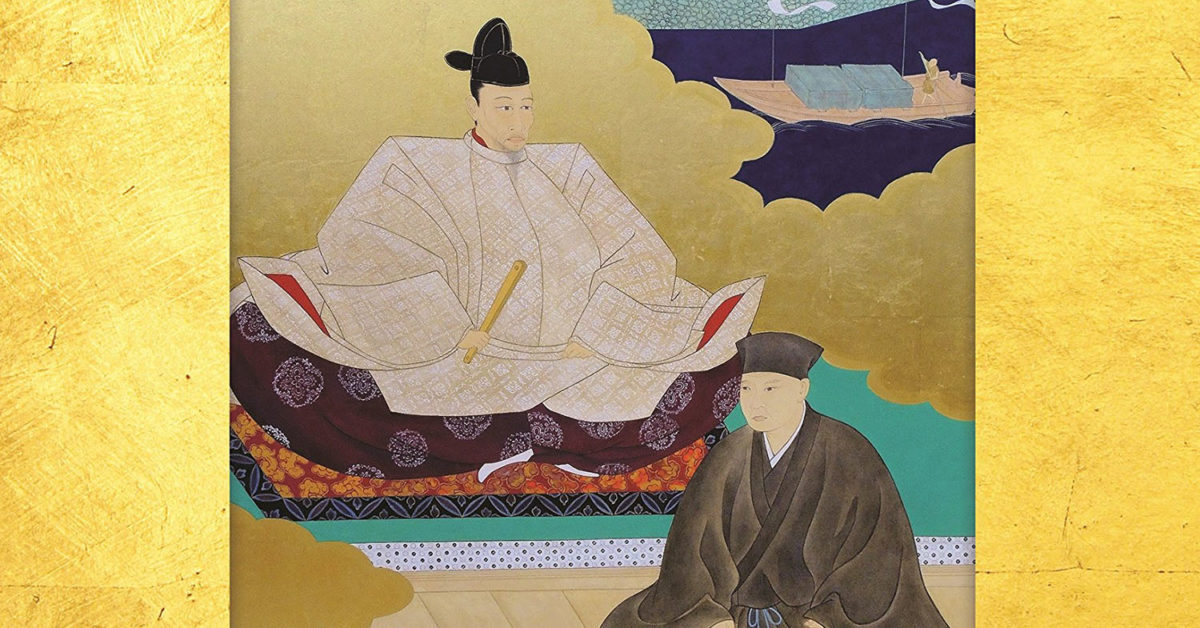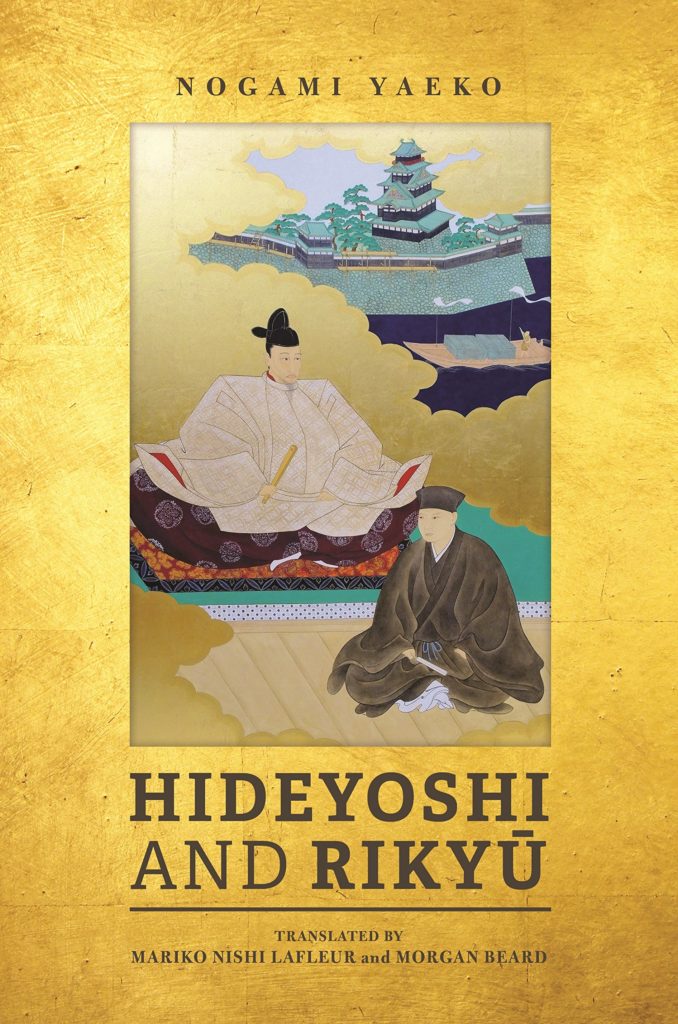
Publisher: Tankosha Publishing Co., Ltd.
Size: 128 x 188 mm
248 pages, softcover
ISBN: 978-4-473-04428-0
This book is a reprinting, with English-language translation by Gretchen Mittwer, of the Japanese book Rikyū Hyakushu authored by Iguchi Kaisen and published by Tankosha In 1973. There are two verses more than the standard hundred, for a total of 102 verses, together with Iguchi Kaisen’s commentary on them all.
The Tankosha Editorial Department writes this in its preface to this bilingual volume:
The form of Japanese verse called waka consists in a short verse composed of 31 syllables in groupings of 5-7-5-5-7, giving the verse an easily remembered rhythm which makes it easy to learn. Verses composed in this format have therefore been familiar to people from ancient times.
In the world of chanoyu, too, a chasho (chanoyu writing/book) which gives itself as the「千宗易(利休)製 茶湯百首」or “Chanoyu hundred verses produced by Sen Sōeki (i.e. Rikyū)” appeared in the mid Edo period (1600–1867). After that, a large number of waka arose in which the chanoyu spirit, temae points to keep in mind, handling of implements, and such teachings were woven into 31 syllables. Hence, various versions of hyakushu, or “hundred verses,” have been passed down.
We hear that there are many chanoyu teaching places where the practice sessions begin or end with a recitation from Rikyū’s Hundred Verses. Our publication of this Japanese and English bilingual edition is in answer to the requests we have received for such a book, from many people engaged in chanoyu practice outside Japan.
Because this bilingual book is formally presented as a book in the Japanese language, however, it generally cannot be found in listings of chado-related books in English.
Amazon.co.jp handles international sales of Tankosha books. A new copy of this volume is priced at ¥1,650. Rikyu’s Hundred Verses in Japanese and English is also available as a digital Kindle book, for ¥1,568. Click here for the book’s page on Amazon.co.jp.



